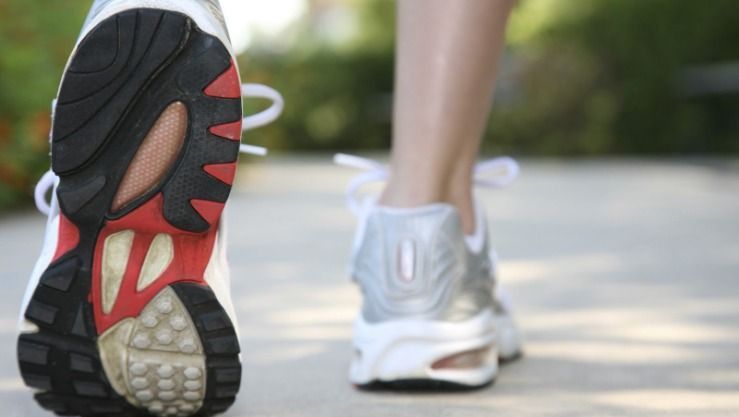
Abir Sh- Walking is a great way to lose weight, especially if you don’t want to go to the gym or feel like you don’t have time. Now you can use a smart tool to find out how far you should walk to lose weight. Starting a weight loss journey when you’re working a nine-to-five job can be tough — especially if you spend a lot of time sitting at a desk.
Finding time to go to the gym or completely overhauling your diet can be challenging. It is an easy, free and low-impact exercise method that is ideal for weight loss.
Walking is sometimes overlooked as a form of exercise, but the NHS reports that walking can help “build stamina, burn extra calories and keep your heart healthy”.
However, you can’t just go to the shops and hope the weight starts to drop. There’s a difference between a brisk walk and a stroll, and you have to walk a certain distance to feel any benefit.
But where do you start?
Fortunately, a smart tool has been developed that helps people see how many calories they burn while walking. If your goal is to burn calories, you can estimate how many steps you need to walk to lose weight. Walking Calorie Calculator by Omni Calculator is an easy-to-use tool to track how many calories you burn while walking. It records data such as the user’s weight, distance traveled and speed; You analyze it to estimate calories burned as accurately as possible.
If you don’t have your own machine.. here is the correct mathematical solution to lose weight!
If someone walks the recommended 4,000 steps on a flat surface at an average speed of 5 km/h, they will burn an arithmetical 131.5 calories. You can be sure that the result will be as accurate as possible.”
So, how far should you walk to lose weight?
You may have heard that you should walk 10,000 calories a day, but it turns out that this is more of a marketing ploy than anything else. Instead, evidence suggests you should aim for 7,500 to 8,000 steps.
According to Poland-based software company Omni Calculator, the average person burns between 200 and 500 calories an hour of walking—but it depends on many factors, so it’s best to use a calculator to find out. The NHS recommends 150 minutes of physical activity per week, and if you want to lose weight, you should aim to lose 1-2 pounds, or 0.5 to 1 kg, per week.

“Award-winning beer geek. Extreme coffeeaholic. Introvert. Avid travel specialist. Hipster-friendly communicator.”
